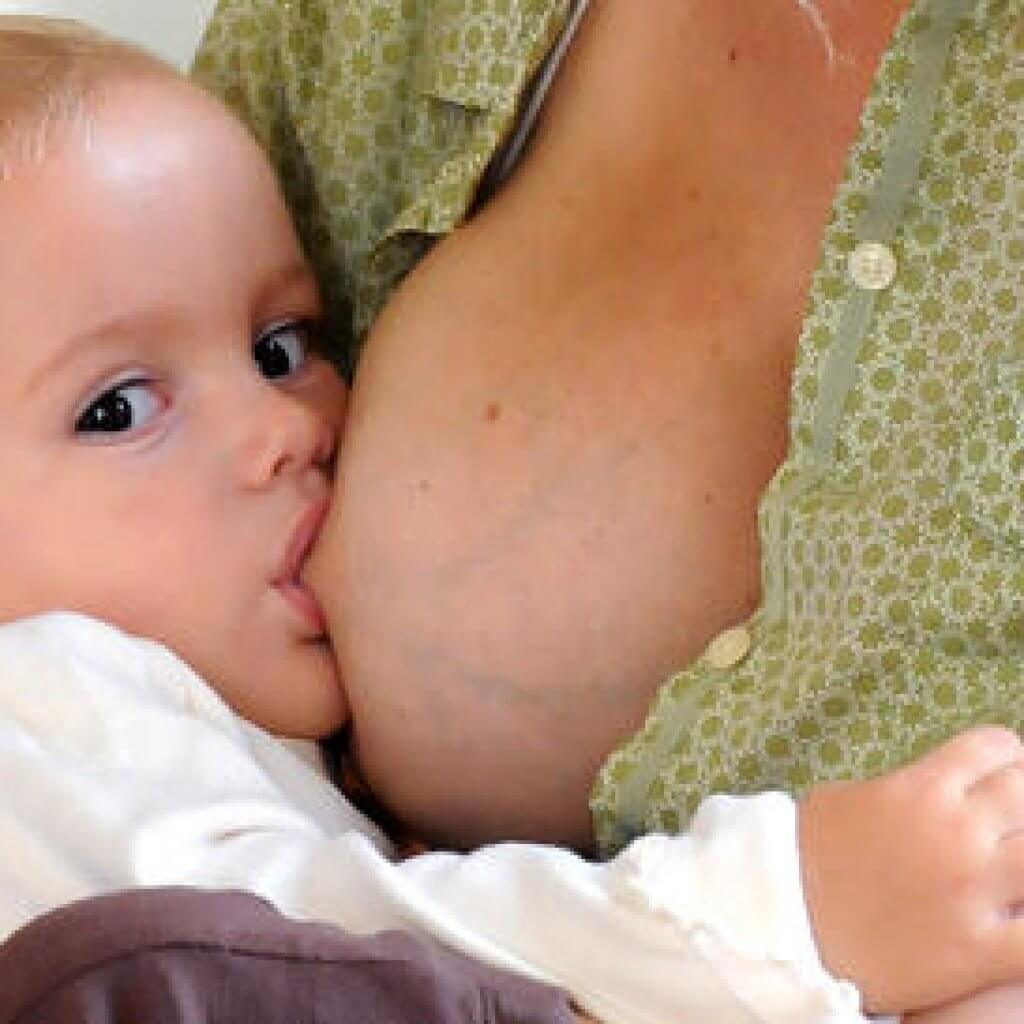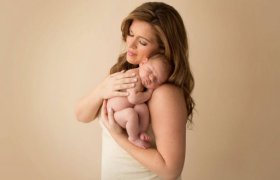The Benefits of Extended Breastfeeding

World Health Organization (WHO)
Currently, the vast majority of mothers don’t even breastfeed up to the age of one. In fact, most mothers don’t even exclusively breastfeed up until 6 months as the World Health Organization (WHO) suggests. This disparity in best practice and reality leaves many infants lacking in nutrients needed for optimal growth and immunity development. Breastfeeding provides the infant with antibodies it won’t be able to fully develop on its own. Infants who receive an adequate duration of breastfeeding are far less likely to be subject to infant death syndrome and are less likely to deal with diseases such as diarrhea, pneumonia, or ear infections. WHO suggests continuing breastfeeding until the age of two, along with other solid and liquid foods. The pediatrics guidelines say breastfeeding ought to continue up until the age of one along with solid food, or as long as both the mother and child feel comfortable. In fact, there are plenty of benefits to continuing breastfeeding longer than what might be considered “normal.”
Baby Formula Isn’t Enough

Many experts also note that the promotion of modern-day baby formula is on the level of being a disservice to mothers and children. The fact of the matter is that scientists and doctors simply can’t replicate human milk artificially. There is no way to (at least for now) to deliver all of the nutrients, and immunity building qualities found in breastmilk, by the means of a man-made substance. As a result, babies and toddlers feed baby formula have been found to be overall less healthy, less intelligent, and less socially developed than babies who nursed from their mothers.
The Benefits of Extended Breastfeeding for the Child
Immune System boost
There seems to be a misconception out there that breast milk is no longer beneficial to a baby after one year. This is simply not true, in fact, the breast milk will always provide the same nutrients to the infant or toddler. When you breastfeed your little one, they are getting essential nutrients such as protein, calcium, healthy fats, and Vitamin A. When an infant is ready for solid food, they shouldn’t give up breastmilk, but rather wean off of it until they are ready to stop altogether. The process of breastfeeding also will always give the child an immune system boost, meaning fewer trips to urgent care and some saved stress. A baby’s mental development will also greatly benefit from extended breastfeeding. This results from the more dynamic experience a baby and toddler has when breastfeeding as opposed to simply feeding from a bottle.
Higher IQ
There are more potentials for various positions to nurse from with breastfeeding, building intelligence through tactile and spatial means. Babies who breastfeed the longest have been shown to have improved grades and higher IQ’s. Due to the soothing way breastfeeding meets the needs of a baby in distress, extended breastfeeding has also been found to help a child’s social development. For babies and toddlers, breastfeeding is an ideal way to calm down during moments of high stress. The child learns to connect with the mother and strengthens their bond with the mother during these moments. It is a great method for mothers to be able to rely on when their child falls down and hurts themselves, or if something scared or upset them.The act of sucking is a natural soothing sensation for growing infants and toddlers.
Improving a young child’s dental arch
Often if breastfeeding is unavailable, they will find other objects, such as their thumb, a pacifier, or bottle to suck on instead. This act can actually put their dental arch out of alignment. Breastfeeding however, actually improves a young child’s dental arch. In addition, if your child may have gotten hurt, being able to calm them down quickly will help you to spot any cuts that may need to be treated.
The Benefits of Extended Breastfeeding for the Mother

Lower rates of various types of cancers
In addition to keeping your baby healthy, extended breastfeeding will keep the mother healthy as well. Mothers who breastfeed longer have been shown to have lower rates of various types of cancers, including breast cancer, ovarian cancer, and endometrial cancer. In addition to fighting cancer risks, women who breastfeed longer also have been shown to have lower rates of osteoporosis later in life. During lactation, the mother’s overall bone density can decrease. During the weaning process however, the bone density builds back up and can sometimes increase past its previous levels. Extended breastfeeding has also been found to reduce the risk of rheumatoid arthritis and cardiovascular disease. For women with diabetes, the act of breastfeeding has been shown to decrease the body’s insulin requirements as well. The nature of this effect is cumulative, meaning more babies and more breastfeeding equals lower risk of disease.
Mothers also will often find breastfeeding their toddlers a soothing way to calm down themselves. If you stay committed to breastfeeding until your child no longer wants to, you could very well find it as a welcomed break. In the midst of work, chores, and dealing with family matters, the act of nursing your child forces you to stop the action and to be calm with your little one. A lot of mothers also find breastfeeding to be quite a bit more convenient than using formula in bottles. Even in public spaces where it may seem inconvenient or inappropriate to breastfeed, you can always come prepared with a cover to make any place at any time work. At home, it will make far more sense to nurse your child quickly and easily than to spend unnecessary time and effort to mix a bottle of formula together. Doing this would also defeat the purpose of most of the benefits of breastfeeding as well. Many mothers also contend that diapers as a result of solid food tend to be far more odorous than diapers as a result of breastmilk. So if you keep some breast milk included in your child’s diet, you can expect diaper changing time to a bit more tolerable.
Fighting the Stigma
It seems as if only recently mothers have been feeling okay about breastfeeding in public spaces. It takes even further adjustment for mothers to feel confident about breastfeeding their little ones in public areas, or even at home around family when they have been so used to an “acceptable” age range for it. Fear of judgment from people in public spaces, or from relatives who may be stuck in their ways, is a real possibility. Thankfully, as further education about the benefits of extended breastfeeding circle to the mainstream, more and more people are being made aware of the benefits of breastfeeding past one year, and perhaps even into two years old. National public health goals are being initiated to encourage mothers to exclusively breastfeed up until their child is six months, and to continue breastfeeding through one year and older.
If you find yourself wanting to try breastfeeding for longer with your child, don’t hesitate when the moment arrives. Whether the moment arrives during a large family reunion, during a play day at the park, or in the privacy of your own home, be sure to ignore any glaring eyes and focus on doing what is best for your child, and for yourself as a mother.






